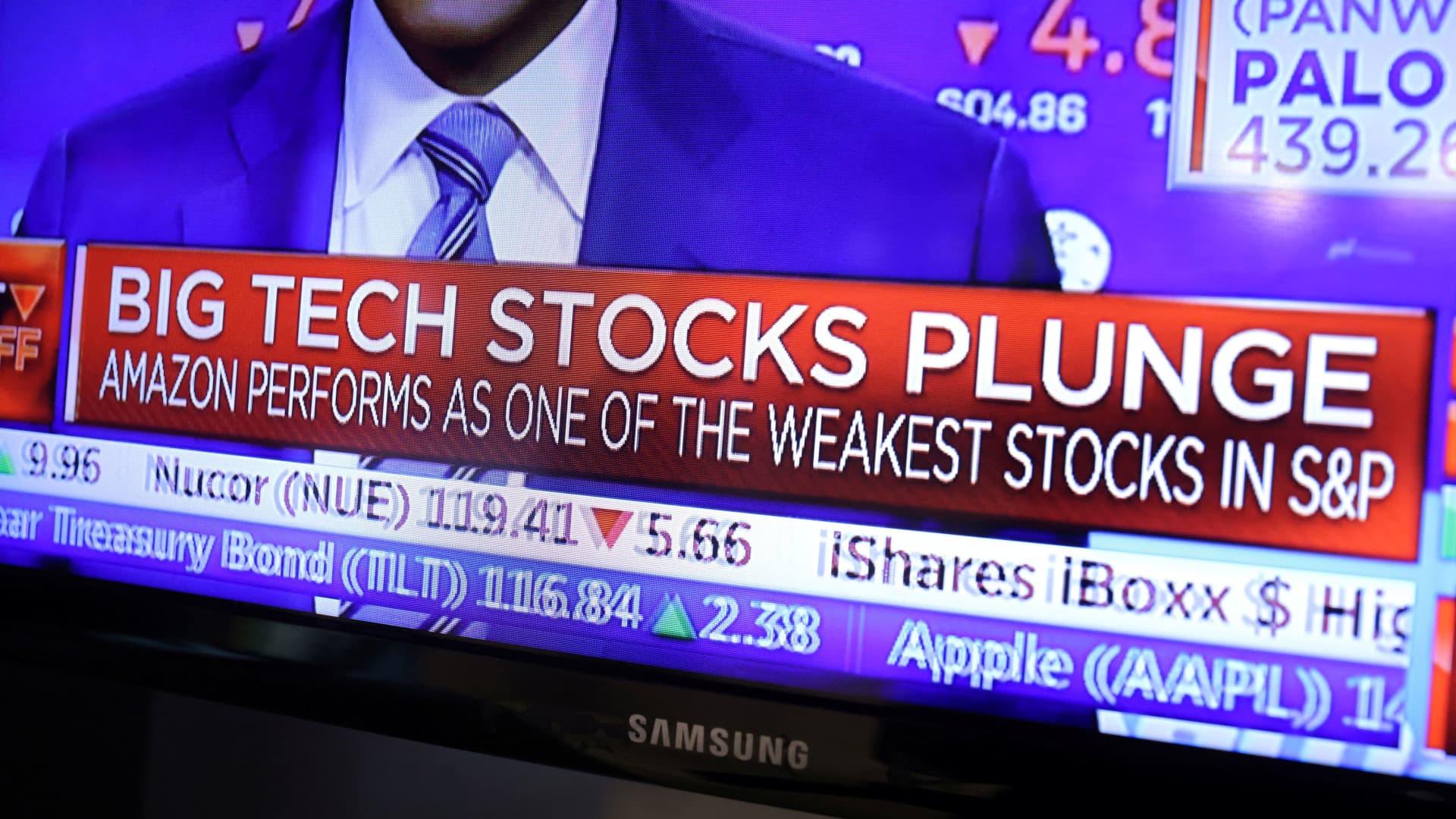
Traders on the NYSE, May 20, 2022.
Source: NYSE
Tech companies haven’t seen a selloff like since 2001 and the bursting of the dot-com bubble.
The Nasdaq declined 3.8% this week, falling for a seventh straight week. It’s the longest losing streak for the tech-heavy index in 21 years.
Inflation, rising interest rates, the war in Ukraine and pandemic lockdowns in China are adding up to a disastrous market in general and a particularly brutal stretch for investors in technology and growth stocks, after historic rallies in recent years.
The Federal Reserve has signaled it will continue to increase rates to fight inflation, leading to concern that higher costs of capital will combine with deteriorating consumer confidence to eat away at profit margins.
The Nasdaq has lost over 29% since its peak on Nov. 19, closing on Friday at 11,354.62. The S&P 500 hasn’t fared as badly, but it still touched bear market territory on Friday, meaning a 20% drop from its high.
Cisco was among the biggest tech losers for the week, falling 13%, after the computer networking giant projected an unexpected revenue drop in the current quarter. Once seen as a bellwether for the economy given its prevalence in enterprises, Cisco said its guidance reflects the company’s decision to cease operations in Russia and Belarus coupled with supply shortages due to Covid-19 lockdowns in China and uncertainty about when things will improve.
“Given this uncertainty, we are being practical about the current environment and erring on the side of caution in terms of our outlook, taking it one quarter at a time,” the company said on its earnings call.
Dell CEO Michael Dell delivers a keynote address during the 2013 Oracle Open World conference on September 25, 2013 in San Francisco, California.
Justin Sullivan | Getty Images
Dell, which reports results on Thursday, tumbled over 11% for the week. Shopify, which sells software for e-retailers, dropped almost 10%. Cloud software company Workday fell about 9% after analysts downgraded the stock on recession fears. Security software vendor Okta slid 14%.
Stocks associated with billionaire Elon Musk also took a hit. Twitter, which is currently in the process of being purchased by the Tesla CEO for $54.20 per share, fell 6% this week to $38.29. Tesla tumbled 14%.
Within Big Tech, Apple dropped 6.5%, suffering its eight-straight weekly drop. Alphabet sank 6%, while Amazon fell by about 5%.
The Nasdaq is now down 20% for the quarter and is on pace for its worst quarterly performance since the fourth period of 2008.
WATCH: CNBC’s interview with Cisco CEO Chuck Robbins




